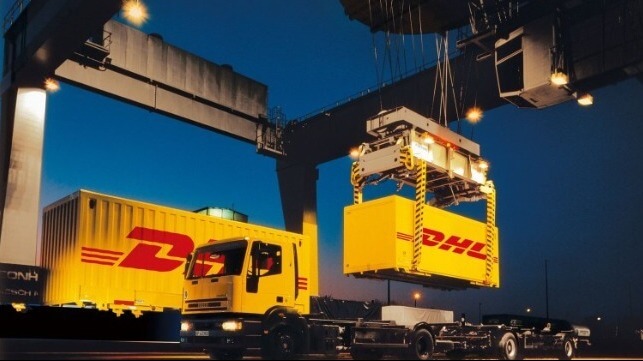DHL and Hapag Support Biofuel Growth with New Shipping Agreement

The use of biofuel in the shipping industry is getting a significant push forward through a new agreement between Hapag-Lloyd and DHL Global, the air and ocean freight specialist of Deutsche Post DHL Group. According to the companies, their new agreement on the use of biofuels will demonstrate the scalability of sustainable transport and sustainable fuels while providing a model for carriers and shippers to cooperate to meet environmental targets.
As an initial step under the agreement, Hapag will ship 18,000 TEU of DHL’s volume using advanced biofuels. The companies expect that this will result in a reduction equivalent to 14,000 tons of Well-to-Wake CO2 emissions. It will also lay the groundwork for more involvement of shippers working with carriers on GHG reductions through all aspects of the supply chain. Hapag expects that biofuel will play a significant role in the upcoming years as the company works towards its goal of becoming net-zero carbon by 2045.
“The decarbonization of heavy transport is an important challenge that the entire industry needs to rethink,” says Dominique von Orelli, Global Head of Ocean Freight at DHL Global Forwarding. Together with Hapag-Lloyd, we want to pave the way for Book & Claim and insetting mechanisms to make it easier for shippers to use sustainable fuels.”
Hapag-Lloyd reports that it has been testing advanced biofuels since 2020. Advanced biofuels are based on raw biological materials, such as used cooking oil and other waste products. This material is used to manufacture a fatty acid methyl ester (FAME), which is then mixed with varying proportions of low sulfur fuel oil. Compared to standard fuels, this pure biofuel product lowers greenhouse gas emissions by more than 80 percent.
“We are very happy to have signed this contract on using a considerable amount of advanced biofuel with DHL,” says Danny Smolders, Managing Director of Global Sales at Hapag-Lloyd. “This project will bring us a step closer to offering our customers biofuel-powered transportation as a commercial product and thereby supporting them in their efforts to reduce their carbon footprint.”
Hapag offers a carbon-reduced transport solution utilizing biofuel blends instead of traditional fossil marine fuel oil (MFO). The resulting reduction in carbon dioxide equivalent (CO2e) emissions the carrier believes can be offered as a “Green Product” on a TEU basis and thereby transferred to customers to help reduce their Scope 3 emissions.

that matters most
Get the latest maritime news delivered to your inbox daily.
The shipping industry has been exploring the use of biofuels for the past few years with increasing acceptance of its capabilities. Tests have shown that it can be used in existing engines and does not change the performance and maintenance requirements of the plants versus the traditional fuel it is replacing.
Expanding the offering for customers, Hapag follows others in the shipping industry that have launched similar programs. In 2020, Stena Bulk announced after successful tests of biofuels on its tankers that it would begin offering a shipping option for customers to participate by contributing to the cost of biofuel and receiving carbon credits. At the time, the company said this would permit customers to participate while noting that biofuels were not available on all major shipping routes.
